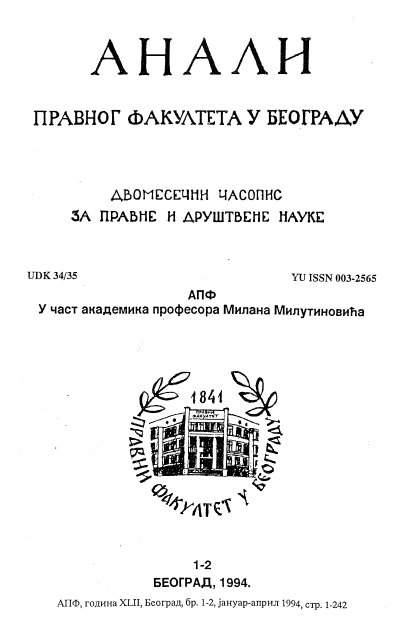СОЦИЈАЛНИ ТЕМЕЉИ ДЕМОКРАТСКОГ И АУТОРИТАРНОГ ПОЛИТИЧКОГ СИСТЕМА
SOCIAL FOUNDATIONS OF DEMOCRATIC AND AUTHORITARIAN POLITICAL SYSTEM
Author(s): Miroslav PečujlićSubject(s): Government/Political systems
Published by: Правни факултет Универзитета у Београду
Keywords: Democratic political system; "Center"; "Periphery"
Summary/Abstract: First analyzed is the model of democratic political system in the societies of the "Center", to be followed by an analysis of anti-democratic tendencies within the Western societies, as well as in relations between the "Center" and the "Periphery". Economic foundation of democratic states of the West is the market. It has been a necessary, if not sufficient, condition of establishing political pluralism. Social basis of democratic political systems is a strong civil society, independent from the state. Within it there exist social classes which, while defending their special crucial interests, establish their centers of power, pluralism, mutual balance and also social compromise. The third important component of democratic political order, which leans on mentioned favourable social basis and which enrichs it back, is the democratic political culture. It assumes a consensus over a set of basic values and rules of the game, then the authorities attached to democracy and a loyal opposition, as well as a critical public opinion. The forms of restricting democracy in the societies of the "Center" relate to neo-conservative dismantling of the welfare state and to corresponding restriction of social prerequisites of democratic life, including the reducing democracy to the competition between political elites, followed by reducing the people to a "mass" and voting machinery, corporative associating of top level representatives of capital, labour and state. The third aspect of restriction of democracy is connected to changing public opinion into a central instrument of political manipulation, captivation of mind and domination. The concluding part of the article is an analysis of the paradoxical fact that democratic societies of the highly developed "Center" become a decisive factor of maintaining or even creating authoritarian, proto-fascist regimes in the "Periphery" (or "Semi- periphery") of Europe.
Journal: Анали Правног факултета у Београду
- Issue Year: 42/1994
- Issue No: 1-2
- Page Range: 186-195
- Page Count: 10
- Language: Serbian

